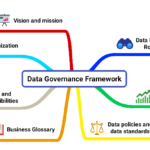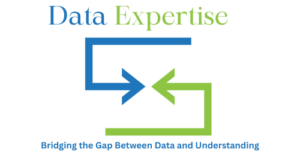Data Management
Data Management encompasses all practices, architectural techniques, and tools to manage data lifecycle needs. Discover strategies, frameworks, and technologies in our Data Management blog posts below.
Effective Data Management ensures that data is accurate, available, and secure. From data governance to data quality management, these practices are essential for reliable and efficient data operations.
How does Data Management ensure data accuracy and security?
Find the related blogs below to explore how Data Management ensures data accuracy and security.
Related Blogs
- 9 Key Concepts and Practices for Understanding Data Architecture
 by Durgesh KekareIntroduction to Data Architecture Data architecture is the blueprint for managing data within an organization. It defines the structures, policies, and standards for managing data assets. By providing a clear framework for data management, data architecture ensures that data is accessible, reliable, and secure, supporting the organization’s overall goals and objectives. The Importance of Data Architecture in Modern Enterprises Effective data architecture is crucial for modern enterprises in today’s data-driven world. It enables organizations to harness the power of their data, transforming raw information into valuable insights that drive decision-making and strategic planning. A well-designed data architecture facilitates data integration,… Read more: 9 Key Concepts and Practices for Understanding Data Architecture
by Durgesh KekareIntroduction to Data Architecture Data architecture is the blueprint for managing data within an organization. It defines the structures, policies, and standards for managing data assets. By providing a clear framework for data management, data architecture ensures that data is accessible, reliable, and secure, supporting the organization’s overall goals and objectives. The Importance of Data Architecture in Modern Enterprises Effective data architecture is crucial for modern enterprises in today’s data-driven world. It enables organizations to harness the power of their data, transforming raw information into valuable insights that drive decision-making and strategic planning. A well-designed data architecture facilitates data integration,… Read more: 9 Key Concepts and Practices for Understanding Data Architecture - 6 Essential Pillars of Data Compliance: Mastering GDPR, CCPA, and Beyond with Confidence
 by Durgesh KekareIntroduction In an era where digital information flows incessantly, the imperative for robust data compliance has never been more pronounced. Organizations across the globe are finding themselves at a crossroads, where the need to harness data for operational excellence must be balanced with the imperative to protect individual privacy rights. The advent of comprehensive data regulations such as GDPR and CCPA marks a significant pivot in the business world, compelling companies to reevaluate and fortify their data handling procedures. These regulations are not just legal frameworks but catalysts for a broader movement toward transparency and accountability in data management. They… Read more: 6 Essential Pillars of Data Compliance: Mastering GDPR, CCPA, and Beyond with Confidence
by Durgesh KekareIntroduction In an era where digital information flows incessantly, the imperative for robust data compliance has never been more pronounced. Organizations across the globe are finding themselves at a crossroads, where the need to harness data for operational excellence must be balanced with the imperative to protect individual privacy rights. The advent of comprehensive data regulations such as GDPR and CCPA marks a significant pivot in the business world, compelling companies to reevaluate and fortify their data handling procedures. These regulations are not just legal frameworks but catalysts for a broader movement toward transparency and accountability in data management. They… Read more: 6 Essential Pillars of Data Compliance: Mastering GDPR, CCPA, and Beyond with Confidence - 7 Revolutionary Strategies: Harmonizing Master Data Management in Enterprises
 by Durgesh KekareIntroduction Welcome to ‘7 Key Strategies in Master Data Management: Unifying Enterprise Data,’ a comprehensive guide to mastering the art of Master Data Management (MDM). This in-depth exploration delves into essential strategies for unifying enterprise data, ensuring consistency, accuracy, and accessibility across an organization. MDM is more than just a technology; it’s a crucial business strategy pivotal in data governance, data quality, and overall business efficiency. Understanding Master Data Management Master Data Management (MDM) is a methodical approach to managing an organization’s critical data. It focuses on creating a single, authoritative source of truth for all master data within an… Read more: 7 Revolutionary Strategies: Harmonizing Master Data Management in Enterprises
by Durgesh KekareIntroduction Welcome to ‘7 Key Strategies in Master Data Management: Unifying Enterprise Data,’ a comprehensive guide to mastering the art of Master Data Management (MDM). This in-depth exploration delves into essential strategies for unifying enterprise data, ensuring consistency, accuracy, and accessibility across an organization. MDM is more than just a technology; it’s a crucial business strategy pivotal in data governance, data quality, and overall business efficiency. Understanding Master Data Management Master Data Management (MDM) is a methodical approach to managing an organization’s critical data. It focuses on creating a single, authoritative source of truth for all master data within an… Read more: 7 Revolutionary Strategies: Harmonizing Master Data Management in Enterprises - Data Migration and Ethics: 7 Key Principles of Privacy in Data Handling
 by Durgesh KekareIntroduction Welcome to ‘7 Key Principles of Data Ethics and Privacy in Data Handling,’ a comprehensive exploration of the ethical considerations in data management. This blog delves into the critical aspects of data ethics and privacy, discussing how organizations can responsibly handle data while respecting individual rights. We examine the balance between data utilization and privacy and the importance of ethical decision-making in data handling, with real-world examples of ethical dilemmas and resolutions in data management. Data Migration to the Cloud Migrating data to the cloud is a critical first step in modern data management. It involves careful planning and… Read more: Data Migration and Ethics: 7 Key Principles of Privacy in Data Handling
by Durgesh KekareIntroduction Welcome to ‘7 Key Principles of Data Ethics and Privacy in Data Handling,’ a comprehensive exploration of the ethical considerations in data management. This blog delves into the critical aspects of data ethics and privacy, discussing how organizations can responsibly handle data while respecting individual rights. We examine the balance between data utilization and privacy and the importance of ethical decision-making in data handling, with real-world examples of ethical dilemmas and resolutions in data management. Data Migration to the Cloud Migrating data to the cloud is a critical first step in modern data management. It involves careful planning and… Read more: Data Migration and Ethics: 7 Key Principles of Privacy in Data Handling - Cloud Storage Essentials: 5 Strategies for Effective Data Management
 by Durgesh KekareIntroduction Welcome to our comprehensive guide on cloud data management. This blog will delve into the essential components of managing data in the cloud, including migration strategies, storage solutions, and analytical techniques. We’ll explore how businesses can leverage cloud technology to enhance their data management capabilities, supported by real-world examples and best practices. Data Migration to the Cloud Migrating data to the cloud storage is the first step in cloud data management. This process involves transferring data from on-premises storage to cloud storage solutions. It’s crucial to plan this migration carefully to minimize downtime and data loss. Strategies like phased… Read more: Cloud Storage Essentials: 5 Strategies for Effective Data Management
by Durgesh KekareIntroduction Welcome to our comprehensive guide on cloud data management. This blog will delve into the essential components of managing data in the cloud, including migration strategies, storage solutions, and analytical techniques. We’ll explore how businesses can leverage cloud technology to enhance their data management capabilities, supported by real-world examples and best practices. Data Migration to the Cloud Migrating data to the cloud storage is the first step in cloud data management. This process involves transferring data from on-premises storage to cloud storage solutions. It’s crucial to plan this migration carefully to minimize downtime and data loss. Strategies like phased… Read more: Cloud Storage Essentials: 5 Strategies for Effective Data Management - 7 Vital Tactics: Mastering Data Governance Frameworks
 by Durgesh KekareIntroduction Welcome to our comprehensive guide on mastering data governance in today’s complex digital landscape. This blog explores the critical role of data governance frameworks in ensuring effective data management, compliance, and security. We’ll delve into best practices, challenges, and real-world examples that illustrate the importance of a robust data governance strategy. The Importance of Data Governance Frameworks Data governance frameworks are vital for managing data assets effectively. They provide structured approaches to data management, ensuring data quality, compliance, and security, which are crucial in today’s data-driven business environment. Moreover, data governance frameworks are instrumental in fostering a culture of… Read more: 7 Vital Tactics: Mastering Data Governance Frameworks
by Durgesh KekareIntroduction Welcome to our comprehensive guide on mastering data governance in today’s complex digital landscape. This blog explores the critical role of data governance frameworks in ensuring effective data management, compliance, and security. We’ll delve into best practices, challenges, and real-world examples that illustrate the importance of a robust data governance strategy. The Importance of Data Governance Frameworks Data governance frameworks are vital for managing data assets effectively. They provide structured approaches to data management, ensuring data quality, compliance, and security, which are crucial in today’s data-driven business environment. Moreover, data governance frameworks are instrumental in fostering a culture of… Read more: 7 Vital Tactics: Mastering Data Governance Frameworks - Data Catalogs and Metadata Management: Organizing Your Data Assets
 by Durgesh KekareIntroduction In the digital age, where data is a vital asset, efficiently managing and organizing this data is crucial for any organization. This blog explores the significance of data catalogs and metadata management in streamlining data assets. We’ll delve into how these tools transform data handling and accessibility, enhancing business intelligence and decision-making processes. Understanding Data Catalogs Data catalogs are vital tools in modern data management, serving as centralized repositories for cataloging and indexing data assets. They enhance data discoverability and usability, making it easier for users to find and understand the data they need. Data catalogs play a key… Read more: Data Catalogs and Metadata Management: Organizing Your Data Assets
by Durgesh KekareIntroduction In the digital age, where data is a vital asset, efficiently managing and organizing this data is crucial for any organization. This blog explores the significance of data catalogs and metadata management in streamlining data assets. We’ll delve into how these tools transform data handling and accessibility, enhancing business intelligence and decision-making processes. Understanding Data Catalogs Data catalogs are vital tools in modern data management, serving as centralized repositories for cataloging and indexing data assets. They enhance data discoverability and usability, making it easier for users to find and understand the data they need. Data catalogs play a key… Read more: Data Catalogs and Metadata Management: Organizing Your Data Assets - 7 Data Management Strategies for Business Success: A Comprehensive Roadmap
 by Durgesh KekareIntroduction In today’s data-driven world, businesses are inundated with vast amounts of information. Managing this data efficiently has become a critical factor in an organization’s success. In this comprehensive guide, we will explore data management strategies that can pave the way for businesses to thrive in the digital age. The Importance of Data Management In the era of big data, data management is not merely a technical requirement but a strategic asset for businesses. Efficient data management Strategies can help organizations make informed decisions, improve customer experiences, and drive innovation. Key Components of Data Management Strategies Effective data management Strategies… Read more: 7 Data Management Strategies for Business Success: A Comprehensive Roadmap
by Durgesh KekareIntroduction In today’s data-driven world, businesses are inundated with vast amounts of information. Managing this data efficiently has become a critical factor in an organization’s success. In this comprehensive guide, we will explore data management strategies that can pave the way for businesses to thrive in the digital age. The Importance of Data Management In the era of big data, data management is not merely a technical requirement but a strategic asset for businesses. Efficient data management Strategies can help organizations make informed decisions, improve customer experiences, and drive innovation. Key Components of Data Management Strategies Effective data management Strategies… Read more: 7 Data Management Strategies for Business Success: A Comprehensive Roadmap - Data Privacy and Compliance: Navigating Legal Frameworks
 by Durgesh KekareIn today’s digital age, where data is the lifeblood of businesses, ensuring data privacy and compliance with legal frameworks is paramount. Organizations that handle personal data must navigate a complex landscape of regulations to protect individuals’ privacy rights. In this blog, we’ll explore the key aspects of data privacy, and compliance requirements, and provide insights into how businesses can effectively navigate this challenging terrain. Understanding Data Privacy The Importance of Data Privacy Data privacy refers to the protection of personal information and the management of data in ways that respect an individual’s rights. In an era where data breaches and… Read more: Data Privacy and Compliance: Navigating Legal Frameworks
by Durgesh KekareIn today’s digital age, where data is the lifeblood of businesses, ensuring data privacy and compliance with legal frameworks is paramount. Organizations that handle personal data must navigate a complex landscape of regulations to protect individuals’ privacy rights. In this blog, we’ll explore the key aspects of data privacy, and compliance requirements, and provide insights into how businesses can effectively navigate this challenging terrain. Understanding Data Privacy The Importance of Data Privacy Data privacy refers to the protection of personal information and the management of data in ways that respect an individual’s rights. In an era where data breaches and… Read more: Data Privacy and Compliance: Navigating Legal Frameworks - Data Security: The Imperative of Data Backup and Recovery
 by Durgesh KekareIn today’s data-driven world, safeguarding your digital assets is of paramount importance. The volume of data we generate and rely on, both personally and professionally, makes the process of data backup and recovery a critical aspect of our digital lives. This blog dives deep into the core elements of data backup, offering insights into its significance, effective strategies, and best practices for ensuring the data security and recoverability of your valuable data. Understanding Data Backup Data backup isn’t a mundane task; it’s your insurance against the unpredictable. This involves the creation and storage of duplicate copies of your data to… Read more: Data Security: The Imperative of Data Backup and Recovery
by Durgesh KekareIn today’s data-driven world, safeguarding your digital assets is of paramount importance. The volume of data we generate and rely on, both personally and professionally, makes the process of data backup and recovery a critical aspect of our digital lives. This blog dives deep into the core elements of data backup, offering insights into its significance, effective strategies, and best practices for ensuring the data security and recoverability of your valuable data. Understanding Data Backup Data backup isn’t a mundane task; it’s your insurance against the unpredictable. This involves the creation and storage of duplicate copies of your data to… Read more: Data Security: The Imperative of Data Backup and Recovery - Mastering Database Management System: From On-Premises to the Cloud
 by Durgesh KekareDatabase Management Systems (DBMS) have been the backbone of data storage for decades. They offer structured and efficient data organization, making them invaluable for various applications, from small-scale businesses to large enterprises. This blog will delve into the evolution of DBMS, its core functions, and how to harness its potential for optimized data storage and retrieval. In today’s data-driven landscape, effective data storage and management are paramount. From the traditional realm of database management systems (DBMS) to the ever-expanding horizons of cloud storage, this blog serves as a guide to mastering data storage and making informed decisions about your data… Read more: Mastering Database Management System: From On-Premises to the Cloud
by Durgesh KekareDatabase Management Systems (DBMS) have been the backbone of data storage for decades. They offer structured and efficient data organization, making them invaluable for various applications, from small-scale businesses to large enterprises. This blog will delve into the evolution of DBMS, its core functions, and how to harness its potential for optimized data storage and retrieval. In today’s data-driven landscape, effective data storage and management are paramount. From the traditional realm of database management systems (DBMS) to the ever-expanding horizons of cloud storage, this blog serves as a guide to mastering data storage and making informed decisions about your data… Read more: Mastering Database Management System: From On-Premises to the Cloud - Data Governance Essentials: Ensuring Data Quality and Security
 by Durgesh KekareIn today’s data-driven world, the importance of data cannot be overstated. It’s the lifeblood of businesses, powering decision-making, insights, and innovation. However, with great data comes great responsibility. Ensuring the quality and security of your data is paramount, and that’s where data governance comes into play. Understanding Data Governance Data governance is a holistic approach to managing, protecting, and optimizing data to ensure its quality, security, and compliance. It involves defining policies, procedures, and responsibilities to ensure that data is used effectively and securely throughout its lifecycle. Let’s delve into the essentials of data governance and why it’s a critical… Read more: Data Governance Essentials: Ensuring Data Quality and Security
by Durgesh KekareIn today’s data-driven world, the importance of data cannot be overstated. It’s the lifeblood of businesses, powering decision-making, insights, and innovation. However, with great data comes great responsibility. Ensuring the quality and security of your data is paramount, and that’s where data governance comes into play. Understanding Data Governance Data governance is a holistic approach to managing, protecting, and optimizing data to ensure its quality, security, and compliance. It involves defining policies, procedures, and responsibilities to ensure that data is used effectively and securely throughout its lifecycle. Let’s delve into the essentials of data governance and why it’s a critical… Read more: Data Governance Essentials: Ensuring Data Quality and Security


